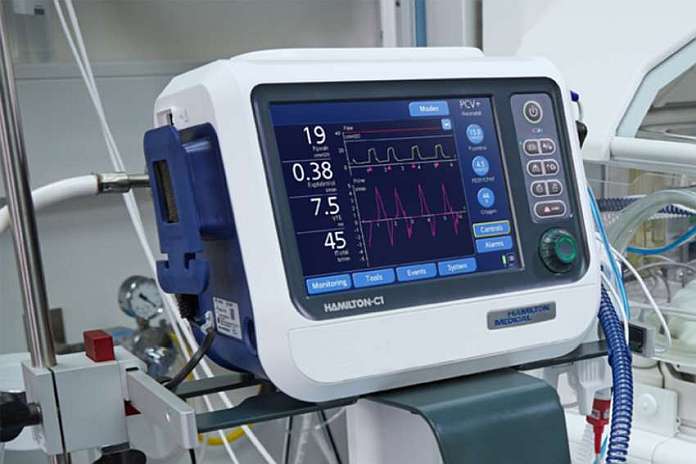By Michael Swan
TORONTO, Canada (The Catholic Register) – When there aren’t enough ventilators or Intensive Care Unit beds for everyone who needs one, it’s left to medical ethicists to provide guidance to clinicians faced with dire decisions about who lives and who dies.
“This pandemic is challenging us all,” said bioethicist and medical doctor Sr Nuala Kenny, who founded the bioethics department at Dalhousie University’s medical school in Halifax. Canada has about 3,200 ICU beds and 5,000 ventilators. Provincial health ministers across the country are ordering more of both in anticipation of high demand due to the COVID-19 pandemic. Kenny stresses that the hard decisions are first of all medical decisions.
“Provision of testing or treatment, when available, requires a medical indication,” she wrote in an e-mail to The Catholic Register. “This is true at all times and especially in times of limitation.”
Before doctors and triage nurses are forced into ethical decisions, the public has to ethically decide to not waste time or medical resources by demanding unneeded tests and treatment. Doctors should and will reject such demands, Kenny said.
“The modern bioethical principle of respect for autonomy does not mean giving them anything they want. Doctors are not Wal-Mart salespersons,” said Kenny. “Clearly, modern medicine has been affected by consumerism and commercialization. ‘Ask your doctor’ has become in many ways ‘tell your doctor.’ ”
The ethics of living through a pandemic should fall first on ordinary people, before we ask doctors to decide who gets a ventilator, said Canadian Catholic Bioethics Institute executive director Moira McQueen. From handwashing to staying home, it’s up to Canadians to “flatten the curve” so that demand for medical interventions does not exceed hospital capacity.
“I think it’s great that so many people are taking this seriously. We’ve been made to take it seriously, with the schools and churches, etc. being closed for our own good,” said McQueen. “This is the hope exactly, that (social distancing and hygiene) works. And these other, stronger ethical decisions wouldn’t have to be made, or at least wouldn’t have to be made to the same extent.”
The hard calculus of who should benefit from limited medical resources is actually something that comes up all the time, said St Joseph’s College moral theology professor Paul Flaman.
“This issue does not only come up with pandemics like we are facing now,” he said. “Decisions are made regularly as to who gets priority in being treated in emergency wards and also with organ transplants.”
The criteria for these decisions are not controversial, Flaman said.
“There is wide agreement about who gets priority based on who has the greatest need or (will have the) greatest benefit,” Flaman wrote in an e-mail. “A dying person may have great need, but treatment may not be able to benefit them.
“That person should still get personal care and support, including pastoral care which is a concern for Christians including Catholics. We also support good palliative care to help dying people die as pain-free as possible and surrounded by love.”
Christians are lucky to have a set of spiritual resources to help determine whether medical resources should be dedicated to a relatively healthy 60-year-old versus a somewhat less healthy 40-year-old.
“From a Christian perspective, we realize our need to entrust everything to God while seeking His guidance in doing what we should,” Flaman said. “From a Christian perspective, while we are to show compassion and try to help the sick and dying, we also believe in a God who loves us and wants us to share His eternal love and life with us after death, which we will all have to face some time in the future.”





